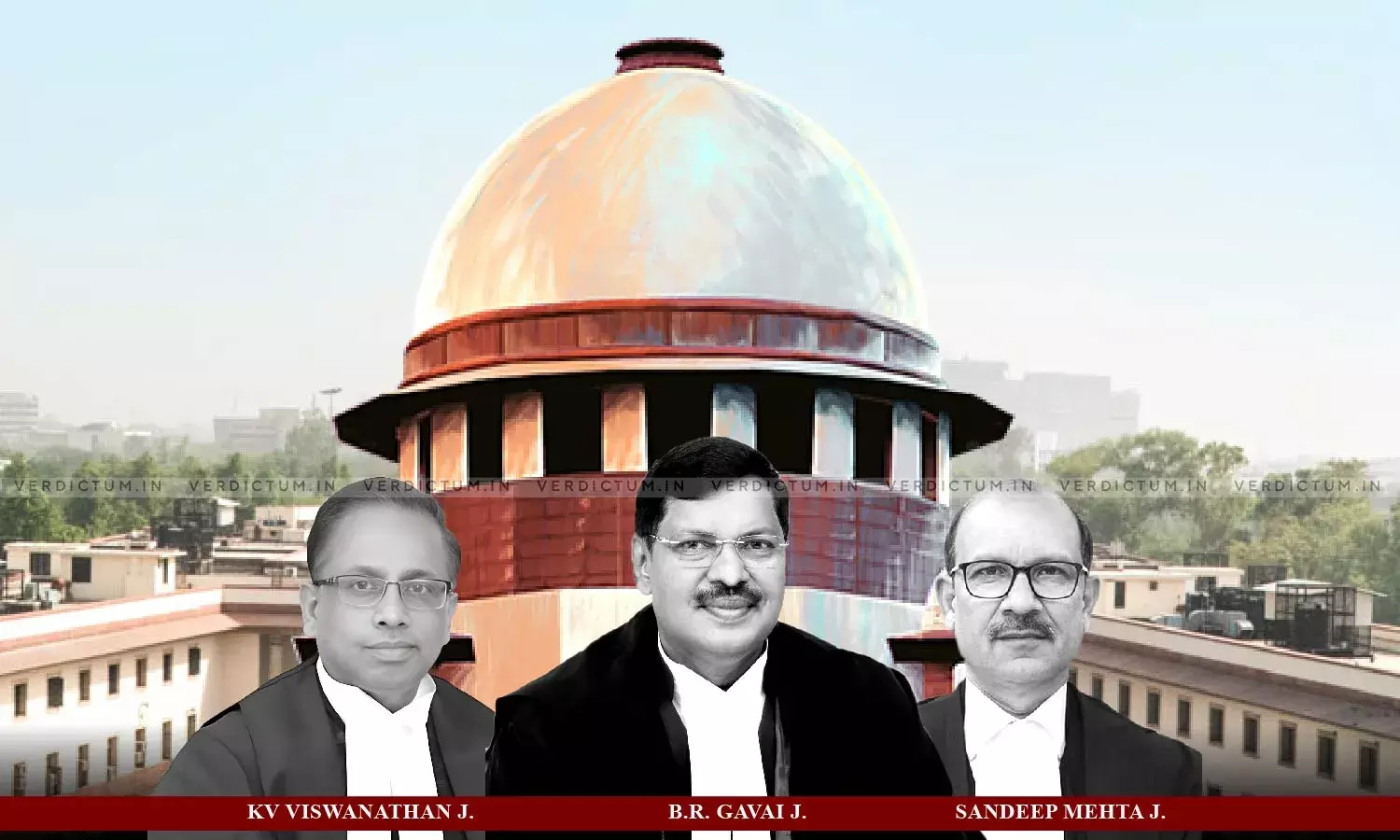SC Explains Principles That Courts Must Adhere While Appreciating & Evaluating Evidence In Cases Based On Circumstantial Evidence

The Supreme Court while upholding the conviction of a man accused of rape and murder of a nine-year-old girl, has explained the principles that Courts must adhere while appreciating and evaluating evidence in cases based on circumstantial evidence.
The Court was deciding Criminal Appeals preferred against the Judgment of the Kerala High Court in an Appeal and Death Sentence Reference which arose out of the Judgment of the Sessions Judge.
The three-Judge Bench comprising Justice B.R. Gavai, Justice K.V. Viswanathan, and Justice Sandeep Mehta enunciated the following principles –
(i) The testimony of each prosecution and defence witness must be meticulously discussed and analysed. Each witness's evidence should be assessed in its entirety to ensure no material aspect is overlooked.
(ii) Circumstantial evidence is evidence that relies on an inference to connect it to a conclusion of fact. Thus, the reasonable inferences that can be drawn from the testimony of each witness must be explicitly delineated.
(iii) Each of the links of incriminating circumstantial evidence should be meticulously examined so as to find out if each one of the circumstances is proved individually and whether collectively taken, they forge an unbroken chain consistent only with the hypothesis of the guilt of the accused and totally inconsistent with his innocence.
(iv) The judgment must comprehensively elucidate the rationale for accepting or rejecting specific pieces of evidence, demonstrating how the conclusion was logically derived from the evidence. It should explicitly articulate how each piece of evidence contributes to the overall narrative of guilt.
(v) The judgment must reflect that the finding of guilt, if any, has been reached after a proper and careful evaluation of circumstances in order to determine whether they are compatible with any other reasonable hypothesis.
Senior Advocate Trideep Pais appeared for the Appellant while Senior Advocate R. Basant appeared for the Respondents.
Facts of the Case -
As per the prosecution case, in 2012, the child victim aged about 9 years was proceeding form her house to a Madrassa and on her way, she went to the house of the Appellant i.e., the accused in search of her friend who was his daughter so as to go to Madrassa together. On seeing the child victim alone, the accused who was also alone in the house, allegedly committed rape upon her in a room in his house and after that, he allegedly strangled her with a shawl and smothered her with his hands which led to her death. It was further alleged that with the intention to destroy evidence, he concealed her dead body beneath a cot inside the bedroom. Thereafter, he shifted the dead body to the bathroom attached to the house and also attempted to dispose of the same in the septic tank.
When the victim could not be found anywhere despite frantic efforts, a written Complaint was submitted by the Complainant based on which an FIR was registered under Section 57 of the Kerala Police Act, 2011. Thereafter, the dead body was found in the bathroom adjacent to the accused’s house and the offence was altered to Section 302 of the Indian Penal Code (IPC). Offences punishable under Sections 376 and 201 IPC and Section 23 of the Juvenile Justice (Care and Protection) Act, 2000 were also added. The Trial Court convicted the accused in 2013 and challenging this, he filed an Appeal before the High Court. Since the Trial Court awarded death sentence to the accused, the case was referred to the High Court for its confirmation. The High Court dismissed the Appeal and allowed the Death Sentence Reference and hence, the Appellant was before the Apex Court.
The Supreme Court after hearing the arguments from both sides, observed, “… there is no doubt in the mind of the Court that the prosecution has proved by leading clinching and convincing circumstantial evidence that the accused had committed forcible and violent sexual assault on the child victim and, thereafter, strangled and killed her. … While we concur with the ultimate conclusions reached by the learned trial Court and the High Court, we cannot overlook the deficiencies in the methodology adopted by both the Courts in the appraisal and analysis of the circumstantial evidence.”
The Court added that the manner in which the evidence was scrutinized lacks the depth and rigor expected, raising concerns about the adequacy of the evaluative process undertaken to arrive at the said decisions.
“The Courts have undertaken an examination of the testimonies of the witnesses but has omitted to delineate the inferences derivable therefrom. Moreover, they failed to expound upon how the prosecution has succeeded in constructing an unbroken chain of circumstances that irrefutably establishes the culpability of the accused to the exclusion of any other hypothesis”, it further said.
Considering the fact that the Appellant passed away, the Court noted that the question of execution of death sentence awarded to him has been rendered otiose and thus, there remains no question of dealing with the aspect of capital punishment awarded to him (since deceased).
Accordingly, the Apex Court dismissed the Appeals.
Cause Title- Abdul Nassar v. State of Kerala & Anr. (Neutral Citation: 2025 INSC 35)
Appearance:
Appellant: Senior Advocate Trideep Pais, AOR Pallav Mongia, Advocates Sakshi Jain, Harini Raghupathy, Saloni Ambastha, Anubhav Mishra, Amritesh Krishna, and Shashank Dwivedi.
Respondents: Senior Advocate R. Basant, AOR Nishe Rajen Shonker, Advocates Anu K Joy, Alim Anvar, Manu Krishnan, and Santhosh K.


